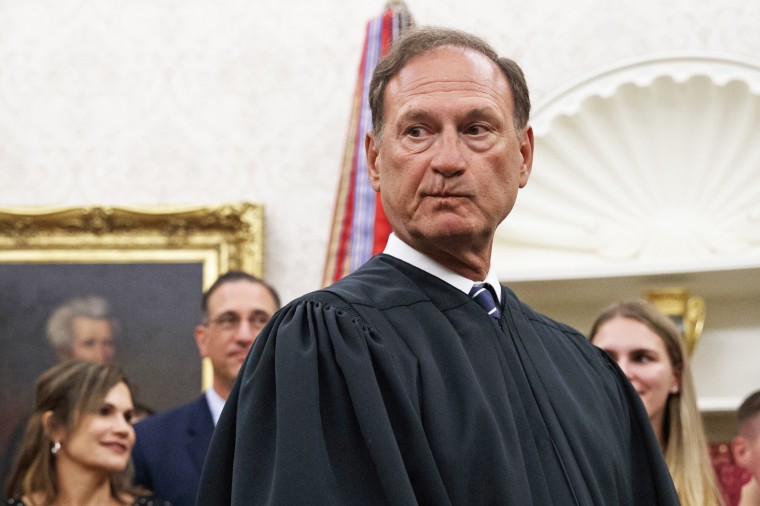Justice Samuel Alito has said he has a "pretty good idea" who was responsible for the leak of his unpublished draft opinion last year, which indicated that the Supreme Court was poised to roll back abortion rights, but does not have the proof needed to name somebody.
In an interview with James Taranto, The Wall Street Journal's editorial features editor, which was published Friday, Alito said: “I personally have a pretty good idea who is responsible, but that’s different from the level of proof that is needed to name somebody.
“It was a part of an effort to prevent the Dobbs draft ... from becoming the decision of the court. And that’s how it was used for those six weeks by people on the outside — as part of the campaign to try to intimidate the court," he said.
The unprecedented leak, first published by Politico, ignited a firestorm of protests from supporters of abortion rights alarmed at the prospect that the court was preparing to overturn the constitutional right to abortion enshrined 50 years ago in Roe v. Wade. In the aftermath of the leak, Democratic congressional leaders vowed to push for a federal law that would codify abortion rights.
Alito, who was nominated by former President George W. Bush, wrote the draft as well as the eventual Supreme Court opinion that overturned Roe in June 2022.
In January, following a lengthy investigation, the Supreme Court announced that it could not conclusively identify who had leaked the unpublished draft. In an unsigned statement, the court said that it had followed up on all leads and that forensic analysis had been performed, but “the team has to date been unable to identify a person responsible by a preponderance of the evidence.”
The investigation was largely limited to the court building and the people who work within it, meaning any actions anyone took at home or elsewhere using personal devices were mostly not within its scope.
The Supreme Court's marshal, Gail Curley, who conducted the investigation, said that 97 court employees were interviewed and all denied being the leaker. She also said it was unlikely the court’s information technology systems were compromised.
Curley did not immediately respond to a request for comment on Alito's remarks to The Wall Street Journal.
In the months following the leak of the draft abortion opinion, there were protests at the homes of some justices.
Alito said last year that the leak had endangered the lives of justices by putting a target on their backs. He referred to the charges against Nicholas John Roske, of Simi Valley, California, who was armed with a handgun, a knife, pepper spray and burglary tools when he was arrested last June near Justice Brett Kavanaugh’s home, between the release of the leaked draft and the court’s eventual ruling.
“The leak also made those of us who were thought to be in the majority in support of overruling Roe and Casey targets for assassination, because it gave people a rational reason to think they could prevent that from happening by killing one of us,” Alito said in October.
He reiterated the sentiment in his interview with The Wall Street Journal this month: “It was rational for people to believe that they might be able to stop the decision in Dobbs by killing one of us.”

